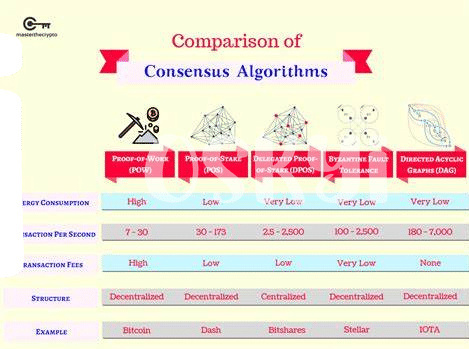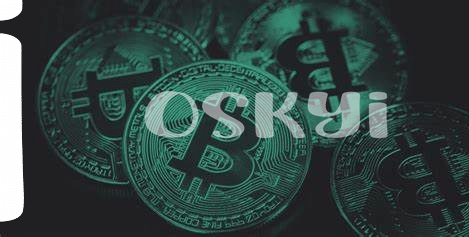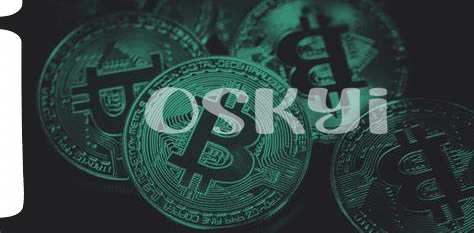Exploring Bitcoin: Beyond Simple Coin Transactions 🪙

Bitcoin is much more than just digital cash flying around the internet. It’s like a giant ledger in the cloud, where every transaction is recorded. Imagine you’re painting a picture, and each brush stroke is a transaction. Just as your painting would grow with more brush strokes, the Bitcoin network grows with each transaction. But there’s a twist: this ledger isn’t held by one person or company; it’s shared across thousands of computers around the world, making sure no single person can mess with the records.
| Date | Transaction | Amount (BTC) |
|---|---|---|
| 2023-01-01 | Alice pays Bob | 0.5 |
| 2023-01-02 | Carol receives from Dan | 1.2 |
| 2023-01-03 | Bob pays Erin | 0.3 |
Beyond just swapping coins, Bitcoin allows for something called “smart contracts.” Think of them as digital agreements that live on the Bitcoin network. They work like a vending machine 🍫: you put something in (like Bitcoin), and the machine automatically does something in return, like sending your friend some Bitcoin on their birthday. This ability to program money opens up a world of possibilities, far beyond just sending and receiving coins.
Quantum Computing 101: a Super-powered Computer Brain 🧠
Imagine a supercomputer with a brain so advanced, it operates on a level that seems straight out of a science fiction novel. This is the world of quantum computing, where computers use the principles of quantum mechanics to process information at incredible speeds. Unlike traditional computers, which use bits (zeros and ones) to perform tasks, quantum computers use quantum bits or qubits. These qubits can exist in multiple states at once, thanks to a phenomenon called superposition. This ability allows them to process complex calculations much faster than their conventional counterparts. Now, think of quantum computing as the turbocharged engine under the hood of a futuristic car, giving it the power to zoom past the current limits of data processing. As we delve into the complexities of bitcoin and its consensus mechanisms, the role of these super-powered brains becomes even more intriguing. With quantum computing, we’re not just stepping into the next chapter of computing technology; we’re leaping into a future full of possibilities that were once thought to be impossible.
Cracking the Code: Quantum Computers & Bitcoin Security 🔐

Imagine a group of super-smart whiz kids solving complex puzzles faster than anyone thought possible. That’s what quantum computers are like when compared to traditional computers. They have a unique ability to process and solve complex problems at incredible speeds. This superpower brings us to a world where the security fortresses built around Bitcoin might face new challenges. You see, Bitcoin’s security relies on complicated math problems that are tough to crack, making it super safe and secure. However, these quantum whiz kids are getting smarter and could eventually learn to solve these puzzles faster than we ever imagined.
This leap in technology poses a question: How safe is Bitcoin if these quantum computers start cracking codes that were believed to be unbreakable? 🔐⚡ The race isn’t just about speed; it’s about ensuring that the foundational security of Bitcoin adapts in the face of these advancements. Adopting new methods and reinforcing the walls around Bitcoin becomes crucial to guard against potential quantum breakthroughs. Keeping Bitcoin secure in the quantum age is like an ongoing chess game, anticipating moves far ahead to ensure its safety and trustworthiness remain intact. 🕵️♂️🔍
Faster Consensus: Quantum Speed in the Bitcoin World ⚡

Imagine a world where Bitcoin decisions are made at lightning speed, all thanks to the incredible abilities of quantum computing. Think of it as upgrading from a trusty bicycle to a rocket ship 🚀. Quantum computers, with their ability to process vast amounts of data almost instantly, have the potential to make the Bitcoin network more efficient than ever before. By leveraging quantum technology, the time it takes for the Bitcoin network to reach a consensus on transactions, updates, and security could be drastically reduced. This means that transactions could be processed, verified, and added to the blockchain quicker, making Bitcoin more scalable and able to handle higher volumes of transactions seamlessly. Moreover, for those keeping an eye on the evolution of Bitcoin, understanding the impact of quantum computing on its future is crucial. By familiarizing themselves with bitcoin paper wallets in 2024, enthusiasts and investors can stay ahead in the fast-paced world of cryptocurrency. However, it’s important to understand that while quantum computing offers exciting possibilities for efficiency and speed, it also introduces new challenges and considerations in the realm of digital currency security and integrity 🛡️💡.
The Potential Risks: When Quantum Meets Bitcoin 🌪️
Imagine a treasure chest that’s always been safe with a traditional lock. Bitcoin, our digital treasure, has been quite secure with its current protection, like sturdy padlocks keeping sneaky hands at bay. Now, enter quantum computing, a kind of super-charged brain that can, theoretically, pick any lock much faster than we ever imagined. This is where eyebrows start to raise 🤨. If quantum computers get their hands on Bitcoin’s locks, they could potentially crack open wallets or duplicate keys, leading to a kind of chaos in the Bitcoin universe we haven’t seen before.
At the heart of this potential storm 🌪️, lies the question of balance – can the incredible speed and power of quantum computing be matched by equally strong defenses? The table below shows a simplified comparison of what quantum computers could impact versus the current state of Bitcoin security:
| Aspect | Current Bitcoin Security | Potential Quantum Impact |
|---|---|---|
| Transaction Speed | Minutes to hours | Seconds |
| Wallet Security | Strong cryptographic practices | Could be compromised |
| Consensus Mechanism | Proof of Work requiring computational work | Could become vulnerable to faster resolution |
The race is on 🏁. As quantum capabilities grow, the Bitcoin community needs to be equally adept, ensuring that what makes Bitcoin special – its security and trust – isn’t lost in the whirlwind of technological advancement.
Future Proofing Bitcoin: Staying Ahead of Quantum Threats 🛡️

In a world swirling with innovation and digital advancement, ensuring the security and longevity of Bitcoin against the tide of quantum computing is crucial. Imagine a digital castle where Bitcoin lives, humming with activity and transactions. Now, picture quantum computing as a giant wave on the horizon, powerful enough to challenge the castle’s fortifications. To keep Bitcoin safe, we’re building stronger walls and smarter defenses. This means updating and strengthening the cryptographic methods that protect Bitcoin, like creating locks that even quantum computers find tricky to pick. It’s a bit like an ongoing game of cat and mouse, where Bitcoin developers are always a step ahead, using cutting-edge research to anticipate quantum computing’s moves. Furthermore, the community is exploring quantum-resistant blockchain technologies, ensuring that Bitcoin remains a secure and viable form of digital currency for the future. As we navigate these waters, you can learn more about how Bitcoin is adapting and evolving by exploring the relationship between bitcoin and the dark web in 2024. Through foresight and innovation, we’re not just defending Bitcoin from quantum threats; we’re ensuring its supremacy in the digital realm, come what may.
